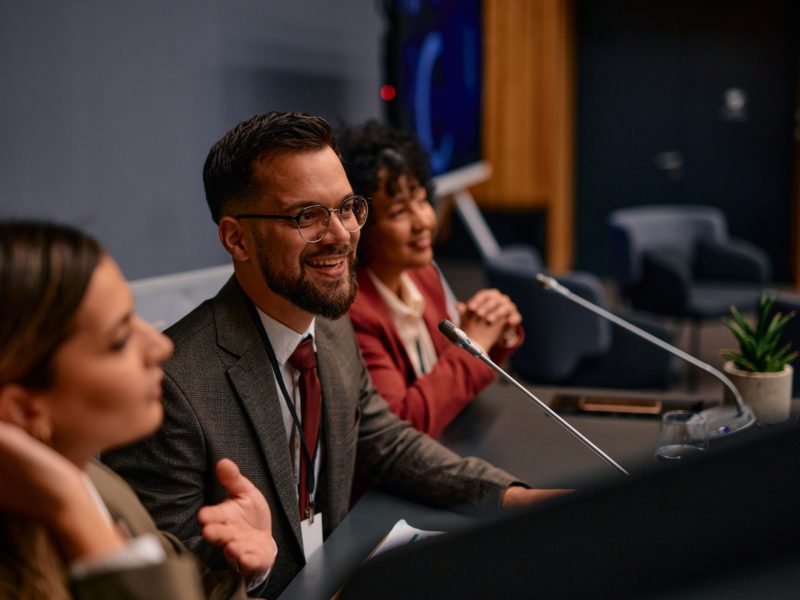Article
How Singapore is Taking Action Against Deepfakes

Laura Fitzgerald
May 13, 2024 (UPDATED ON October 30, 2025)
4 minutes read time
Singapore will increase security regarding deepfake scams in the future. Dr. Tan Wu Meng (Jurong GRC) said the issue of deepfakes is a serious matter for all democracies and called on the government to look at ways of electronically watermarking content as proof that it is accurate in the future.
Emphasizing the critical role of authenticity for the functioning of any democracy, Dr. Tan thinks, “If we can no longer easily discern what is real and what is not, a functioning democracy becomes impossible. No government, irrespective of political affiliation, can effectively govern without this essential foundation for democratic discourse.”
A recent incident involving Prime Minister Lee Hsien Loong, whose likeness was used to promote investment products, is another example of the computing power of deepfakes and how realistic and believable they’ve become.
Here’s what you need to know about recent changes and how Singapore will increase security around handling and protecting against false news and scams.
1. Under OCHA, designated online service providers could be required to implement further measures
The Online Criminal Harms Act (OCHA) was passed in July 2023, allowing the government to issue directions to online platforms to prevent potential scam-related accounts or content from reaching Singapore users. The country is working with partners to beef up security and provide other measures to improve the accuracy of online media.
They also mandate that public education programs on digital media and information literacy, cybersecurity, and scam efforts must be adequate to protect and maintain a safe digital society. Some of these added programs include the National Library Board’s (NLB) signature S.U.R.E. (Source. Understand. Research. Evaluate.) campaign, the Cyber Security Agency of Singapore (CSA)’s national cybersecurity campaign “Unseen Enemy,” and the Singapore Police Force and the National Crime Prevention Council’s anti-scam campaign “I can ACT against scams.” The Scam Public Education Office (SPEO) was also set up in 2023 to drive anti-scam public education efforts and expand outreach.
2. A $20M initiative passed in the Singapore Parliament on Jan 10th, 2024
The main goal of this new initiative is to grow new capabilities to keep pace with deepfakes and prevent misuse. It will bring together companies and technologies to increase the ability to create a safer internet.
The goal is to detect fake claims and dangerous deepfakes. These research efforts will also help develop new technologies needed to protect against harmful information and misuse on the internet.
In a year of record elections, with at least 40 countries and territories heading to the polls, this has raised concerns about how such manipulated content can influence voters.
3. Funds will be used to boost the research capabilities of groups like CATOS
The Centre for Advanced Technologies in Online Safety (CATOS), launched in the first half of this year, aims to enhance industry collaboration and knowledge exchanges in deepfake detection. The Agency for Science, Technology, and Research (A*STAR) will host the group, focusing on building and customizing tools to detect harmful content, including deepfakes and non-factual claims, and test technologies like watermarking and content authentication.
The CATOS annual event, the Online Trust and Safety (OTS) Forum, will be held on 15th May and will feature international experts and showcase the first version of technology solutions for trial and adoption. Over 100 academics and 30 professionals participated in CATOS’s work. In the future, they’ll draw on capabilities from local and global research institutes to strengthen collaborations on deepfake technology.
How is Pindrop Involved?
Pindrop will showcase its expertise at the OTS Forum on 15th May at the Ritz Carlton on the topic of “Real-time audio deepfake detection.” As an IMDA-accredited company, Pindrop is uniquely positioned to address the multifaceted challenges posed by deepfakes at scale. Visit our complimentary booth to connect and explore our innovative solutions.
Raising awareness around the role of deepfakes and understanding of regulatory framework
Pindrop is honored to be a part of the IMDA Accreditation, which provides Singapore-based ICM companies with a streamlined procurement process for government ICT projects. Technological advancements, ongoing research in deepfake detection and attribution, and collaboration between industry stakeholders and policymakers are some steps it will take to prevent deepfakes from going mainstream and disrupting elections, media trust, and more.
Learn more about Pindrop Pulse and how we’re helping countries take action to address the multifaceted challenges posed by deepfakes.




